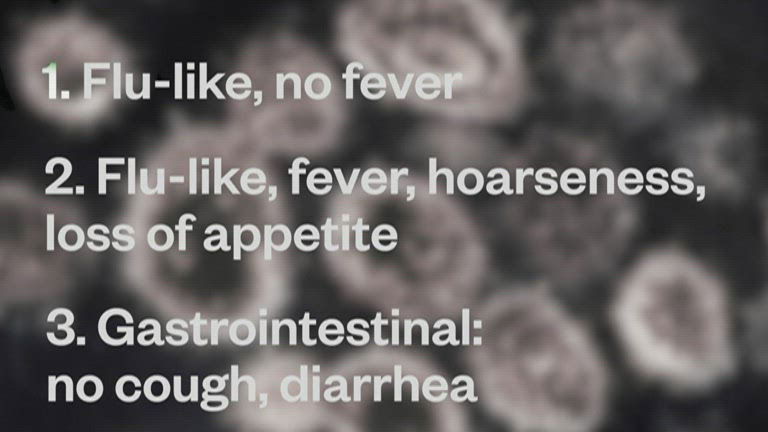Scientists identify 6 strains of coronavirus
Symptoms prove to be more wide-ranging that doctors originally thought - NBC's Helena Humphrey reports
LONDON, England (KYMA, KECY/NBC News) - The longer the world lives with the coronavirus pandemic, the more revealing this strange, new virus becomes.
Doctors and scientists across several countries say the virus does not effect everyone the same way. Now, researchers in the United Kingdom say they believe that's because there are actually six different strains of the virus.
Scientists at King's College have developed an app to collect and analyze the many versions of COVID and find out why it has such varied symptoms and outcomes.
If you, or someone you know has had the virus, you already know, it isn't the same for everyone.
"Some patients experience a mild illness, and others a fight for their lives. Now, using an app to collect data, scientists here at King's College London say they've identified six 'types' of Covid-19 symptoms." says NBC's Helena Humphrey.
Symptoms can be far more wide-ranging than doctors first thought.

With the first type of symptoms, patients experience headache, loss of smell, muscle pains, sore throat, cough and chest pains. They experience fever, as well as hoarseness and loss of appetite with the second type. The third does not include a cough, but sufferers do have diarrhea.

Then come three sets of severe symptoms, where patients are most likely to be hospitalized. Level 1 leads to flu-like symptoms and hoarseness with added fatigue. With Level 2, patients experience confusion and muscle pain. Finally, Level 3 includes serious abdominal and respiratory symptoms, including shortness of breath and abdominal pain.
Grouping the symptoms has enabled scientists to build an artificial intelligence prediction tool that could alert physicians when a patient might require hospital care based on their earlier symptoms.
"We can say well actually, this person, we should potentially bring her, him or her, to hospital a bit earlier or no we will wait a bit more, but we have trigger systems that tells us actually, now we need to act a bit earlier." said Dr. Carole Sudre, a researcher at King's College.
The early warning system could help physicians work out where hospital beds will be most needed, even as several states, including Florida, Texas, and Arizona, grapple with a surge in new cases.
(S/ Dr. Panagis Galiatsatos / ICU Physician, Johns Hopkins)
"This is by far the most gold standard that we could ever have in regards to critical care resources and allocation in the time of the pandemic, being able to predict who will not do well is huge, it's so important to have." said Dr. Panagis Galiatsatos, an intensive care physician at Johns Hopkins.
The findings of the British study have yet to be peer-reviewed, but as countries face a second wave, it could be technology that's leveraged for a response that's smarter, faster, and saves more lives.